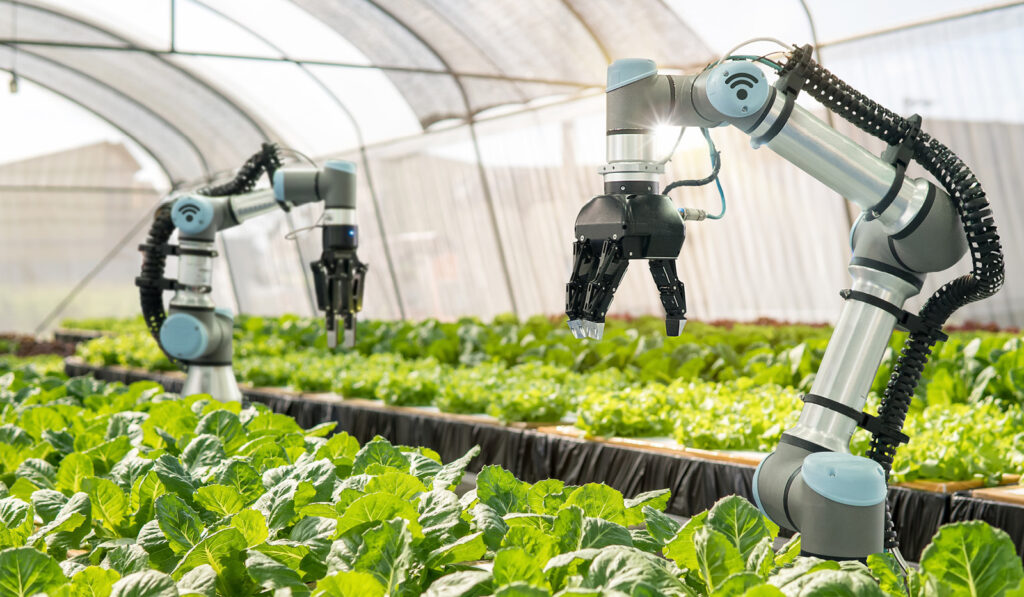There is no doubt that technology is fundamentally transforming agriculture, making it more efficient, sustainable, and productive. A major turning point for agricultural technology is the industrial revolution, which introduced agricultural machinery to mechanize the labour of agriculture, greatly increasing farm worker productivity.
In modern mechanized agriculture, powered machinery has replaced many farm jobs formerly carried out by manual labour or by working animals.
The use of advanced agricultural technologies now allows the precise application of what is required for each location, as well as the careful treatment for each plant.
Here’s how technology is driving this transformation:
Precision Agriculture: Technology, including GPS, drones, and sensors, enables farmers to collect detailed data about their fields. This data helps optimize planting, irrigation, fertilization, and pesticide use, leading to higher yields and resource conservation.
Data Analytics and AI: Advanced data analytics and artificial intelligence are used to analyze the vast amounts of data collected on farms. This allows for predictive modeling, disease detection, and real-time decision-making, improving crop management.
Automation and Robotics: Robotics and automation are increasingly used for labor-intensive tasks like planting, harvesting, and weeding. These technologies reduce labor costs and increase efficiency.
Biotechnology: Genetic engineering and gene editing are used to develop crops that are more resilient to pests, diseases, and environmental stressors. This enhances crop yields and reduces the need for chemical inputs.
IoT (Internet of Things): IoT devices and sensors provide real-time data on soil moisture, weather conditions, and crop health. Farmers can monitor and manage their operations remotely, optimizing resource use.
Vertical Farming: Controlled environment agriculture, including vertical farming, allows for year-round crop production in urban areas. LED lighting and hydroponics reduce the need for large land areas and minimize transportation costs.
Blockchain Technology: Blockchain ensures transparency and traceability in the food supply chain, allowing consumers to verify the origin and quality of their food products.
Smart Irrigation: Smart irrigation systems adjust water delivery based on real-time data, conserving water and energy while maintaining optimal soil moisture levels.
Farm Management Software: Software applications help farmers with crop planning, inventory management, and financial tracking, streamlining farm operations.
Livestock Technology: Technology is used to monitor and manage livestock health, track animal movements, and optimize feeding schedules.
Climate-Smart Agriculture: Technology aids in adapting to and mitigating the effects of climate change by providing early warning systems for extreme weather events and helping farmers choose resilient crop varieties.
Market Access: Digital platforms and mobile apps connect farmers directly to consumers and markets, reducing intermediaries and increasing profits.
Education and Training: Online resources and agricultural apps provide farmers with access to valuable information, training, and market insights.
Sustainability: Technology promotes sustainable farming practices, including reduced chemical use, soil conservation, and biodiversity protection.
Remote Sensing: Satellite imagery and remote sensing technologies help monitor large agricultural areas, assess crop health, and detect issues early.
Overall, technology is playing a pivotal role in addressing the challenges of global food security, climate change, and resource scarcity. It empowers farmers to make data-driven decisions, adopt sustainable practices, and increase agricultural productivity, ultimately contributing to a more resilient and efficient food system.

